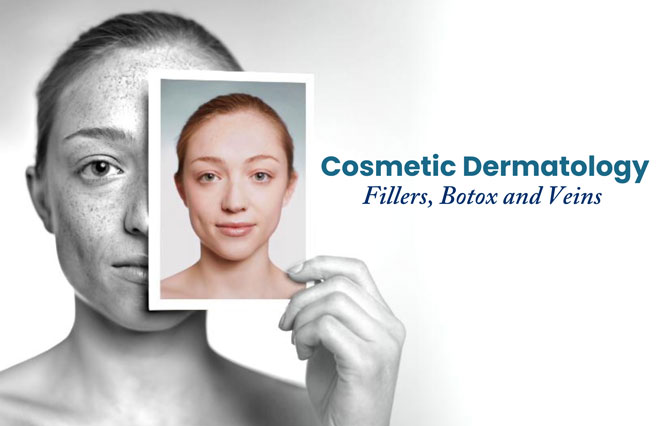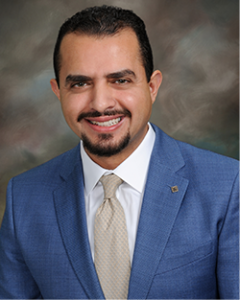Cosmetic and Aesthetic Dermatology

Cosmetic Dermatology
Cosmetic Dermatology provides treatments for the skin, hair, or body that is intended to improve a patient’s look is also called aesthetic dermatology.
Cosmetic or aesthetic dermatology focuses on improving appearances rather than curing illness. Improved self-esteem and self-perception are positive side effects of aesthetic dermatology this often helps the patient’s mental health and self confidence.
Hours of Service:
Monday through Friday
8:00 am-5:00 pm
Marwan Al-Haddad, MD
(315) 798-1829
Appointments:
NEW! UTICA LOCATION:
117 Business Park Drive
Utica, NY 13502
Slocum-Dickson’s Cosmetic Dermatologist
Marwan Al-Haddad, MD
(315) 798-1829

Dr. Al-Haddad specializes in all aspects of dermatology including cosmetic, cutaneous surgery, and medical dermatology for patients of all ages. He provides a variety of dermatological services including: skin cancer surgery, cryotherapy, skin biopsy, shave removal, topical chemotherapy, photodynamic therapy, electrodessication and curettage, conservative excision, wide local excision for skin cancer, Biological therapy, wrinkle reduction, volume restoration with injectable fillers, and vein removal.
Dr. Al-Haddad completed specialty fellowship training in cosmetic surgery through the prestigious American Society of Dermatologic Surgery Fellowship program at Cosmetic Laser Dermatology in San Diego, CA. He completed his Dermatology Residency at Icahn School of Medicine at Mount Sinai in New York City where he served as Chief Resident during his last year of training. Dr. Al-Haddad completed an internship at Detroit Medical Center / Wayne State University in Detroit and a Research Fellowship in Dermatology at Tufts Medical Center. He earned his Medical Degree from King Saud Medical School-King Saud University in Saudi Arabia.
He performed clinical investigation in multiple areas of general and cosmetic dermatology including: psoriasis, eczema, acne, vitiligo, skin cancer, lasers, energy devices, fillers and cosmeceuticals. He has been honored with numerous awards including the Rising Dermatology Stars Competition for Residents and the Future leaders Network Grant Award. He is a member of the American Academy of Dermatology, the American Society of Dermatologic Surgery, the New York Society of Dermatology, and the American Medical Association.
What Patients Are Saying about Dr. Al-Haddad
“I can’t express how you positively changed my life”
“I will be forever grateful for your care”
Cosmetic or Aesthetic Dermatology
Our Cosmetic Dermatology Department offers a variety of cosmetic and aesthetic dermatological procedures to help our patients accomplish different objectives. Here is a brief explanation of the aesthetic procedures we provide and their objectives:
BTX Injectable Toxin: Treatments using BTX toxins are mostly used to minimize forehead creases and crow’s feet around the eyes, but they also have a variety of other uses.
Fillers: Dermal fillers can also be utilized to give body to cheekbones or lips and restore volume to skin that has lost volume as a result of aging.
Mole Removal: Moles may be removed for both treatment and aesthetic purposes. This procedure tends to be quick and easy for patients.
Dermatology FAQs
What Is The Difference Between General Dermatology And Cosmetic Dermatology?
Cosmetic dermatology is more elective and procedures are normally focused on the aesthetic enhancement of the skin. Medical dermatology is an aspect of dermatology that targets the “disease” aspect of dermatology and treats skin ailments to reduce health risks.
What is a Dermatologist?
A dermatologist is a physician who is trained to evaluate and manage pediatric and adult patients with benign and malignant disorders of the skin. A dermatologist has had additional training and experience in the following:
- The diagnosis and treatment of skin cancers, melanomas, moles, and other tumors of the skin.
- The management of contact dermatitis and other inflammatory skin disorders.
- The recognition of the skin manifestations of systemic and infectious diseases.
- Dermatopathology (the microscopic diagnosis of diseases of the skin).
- Surgical techniques used in dermatology.
To be certified as a dermatologist, a physician must have had at least four years of post-graduate training accredited by the Accreditation Council for Graduate Medical Education. The first broad-based general clinical year is followed by three years of intensive training in dermatology including dermatopathology and dermatologic surgery. In addition to the successful completion of the four years of required training, the certification process includes a comprehensive examination administered by the American Board of Dermatology. With this background and knowledge, dermatologists are singularly qualified to diagnose and treat a wide variety of dermatologic conditions as well as benign and malignant skin tumors.
Dr. Al-Haddad Also Provides Medical Dermatology For Conditions Including
- Acne: it is an extremely common skin condition that develops when hair follicles on the face become clogged with dead skin cells and oil.
- Athlete’s foot: A fungal infection that usually begins between the toes. Athlete’s foot commonly occurs in people whose feet have become very sweaty while confined within tight-fitting shoes
- Cold sores: Also known as fever blisters, cold sores are a common viral infection. They are tiny, fluid-filled blisters on and around your lips.
- Cosmetic and Laser Dermatology: Using light therapy-based procedures, injectables, and laser treatments, we offer many procedures to enhance and improve your appearance.
- Skin infections: An infection of the skin that can be caused by bacteria, fungus, viruses, or parasites.
- Nail problems: Common causes of fingernail problems include injury, infection and skin diseases such as eczema and psoriasis.
- Skin cancers: The abnormal growth of skin cells. Skin cancer develops when cells that make up your skin reproduce abnormally.
- Psoriasis: Psoriasis is a skin disease that causes a rash with itchy, scaly patches, most commonly on the knees, elbows, trunk and scalp.
- Eczema: a common skin condition that also goes by the names atopic eczema, dermatitis, and atopic dermatitis.
- Hair loss: Baldness typically refers to excessive hair loss from your scalp. Hereditary hair loss with age is the most common cause of baldness.
- Warts: These small, noncancerous growths appear when your skin is infected with one of the many viruses of the human papillomavirus (HPV) family.
- Rashes: A rash is an area of irritated or swollen skin. Many rashes are itchy, red, painful, and irritated.
- Photo Therapy: also known as light therapy, phototherapy, is the use of ultraviolet (UV) light for its healing effects and is used to treat skin diseases like psoriasis, eczema, dermatitis, or vitiligo.
